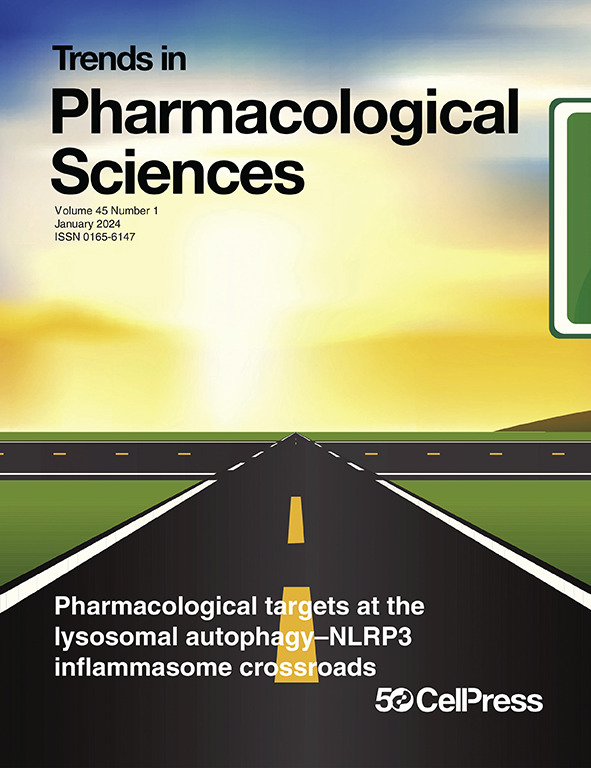增强致癌信号,杀死癌细胞。
IF 13.9
1区 医学
Q1 PHARMACOLOGY & PHARMACY
Trends in pharmacological sciences
Pub Date : 2024-06-01
Epub Date: 2024-05-10
DOI:10.1016/j.tips.2024.04.011
引用次数: 0
摘要
抑制致癌信号转导的癌症靶向疗法往往会导致抗药性和复发。在最近的一项研究中,Dias 等人提出了激活致癌通路并诱导复制应激,从而导致结直肠癌(CRC)中的细胞死亡和肿瘤抑制机制。这种方法可能会引发新一轮的靶点发现、药物开发和抗癌再利用浪潮。本文章由计算机程序翻译,如有差异,请以英文原文为准。
Enhancing oncogenic signaling to kill cancer cells.
Cancer-targeted therapies that inhibit oncogenic signaling often lead to resistance and recurrence. In a recent study, Dias et al. propose activating oncogenic pathways and inducing replication stress, resulting in cell death and tumor-suppressive mechanisms in colorectal cancer (CRC). This approach could spark a new wave of target discovery, and drug development and repurposing against cancer.
求助全文
通过发布文献求助,成功后即可免费获取论文全文。
去求助
来源期刊
CiteScore
23.90
自引率
0.70%
发文量
132
审稿时长
6-12 weeks
期刊介绍:
Trends in Pharmacological Sciences (TIPS) is a monthly peer-reviewed reviews journal that focuses on a wide range of topics in pharmacology, pharmacy, pharmaceutics, and toxicology. Launched in 1979, TIPS publishes concise articles discussing the latest advancements in pharmacology and therapeutics research.
The journal encourages submissions that align with its core themes while also being open to articles on the biopharma regulatory landscape, science policy and regulation, and bioethics.
Each issue of TIPS provides a platform for experts to share their insights and perspectives on the most exciting developments in the field. Through rigorous peer review, the journal ensures the quality and reliability of published articles.
Authors are invited to contribute articles that contribute to the understanding of pharmacology and its applications in various domains. Whether it's exploring innovative drug therapies or discussing the ethical considerations of pharmaceutical research, TIPS provides a valuable resource for researchers, practitioners, and policymakers in the pharmacological sciences.

 求助内容:
求助内容: 应助结果提醒方式:
应助结果提醒方式:


